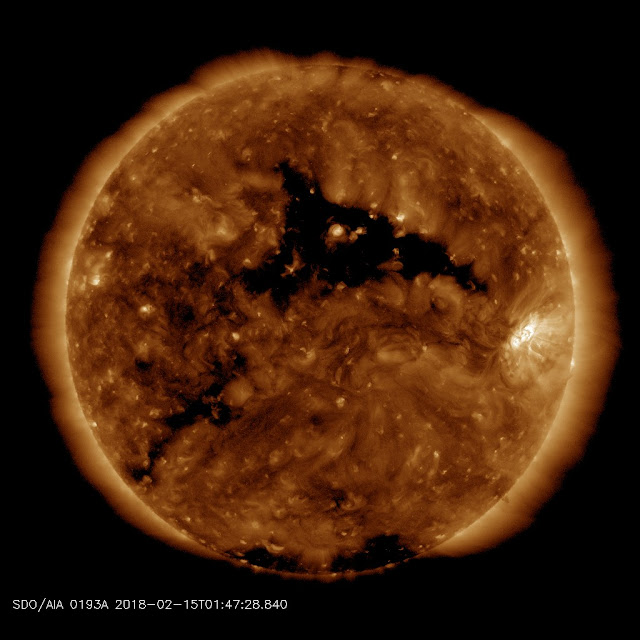Solar wind flowing from this wide coronal hole is expected to reach Earth on Feb. 15th-16th, adding its effect to that of an incoming CME due to arrive around the same time. Credit: SDO/AIA

Three days ago sunspot AR2699 exploded, the explosion lasted for more than six hours and produced a C1-class solar flare and hurled a coronal mass ejection (CME) almost directly toward Earth, see the film below.
According to Spaceweather.com, the CME is expected to reach Earth today.
NOAA forecasters say there is a 60% chance of G1-class geomagnetic storms with isolated periods of stronger G2 storming.

The effectiveness of the CME could be enhanced by a stream of solar wind that was already en route to Earth when the sunspot exploded.
The solar wind is flowing from a large wedge-shaped hole in the sun's atmosphere.
If the approaching CME sweeps up material from that stream, snowplough-style, it could strike Earth's magnetic field with extra mass and potency.
If the coming storm intensifies to category G2, observers in northern-tier US states from Maine to Washington could see auroras as well.


